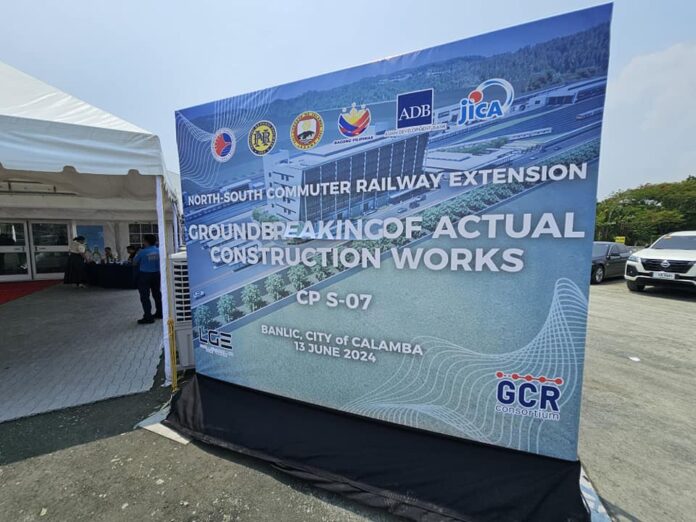The Department of Transportation (DOTr) on Thursday kicked off the construction of a depot for the North-South Commuter Railway (NSCR) project in Calamba, Laguna.
Transportation Secretary Jaime J. Bautista said the groundbreaking of the NSCR Banlic Depot signals the rapid progress of the project a year after its land development and other preparatory works in 2023 were threshed out.
“We mark the significant progress since June last year in land development and other preparatory works such as geotechnical investigation, fencing, clearing, erecting temporary project site offices and access roads,” Bautista said.
The Depot covers an area of 24.5 hectares and consists of construction works for the CP-S07, including a control center, stabling yard, maintenance shop, and other ancillary buildings.
The P16.9 billion contract package is scheduled to be completed in 2028.
“For residents of Banlic and adjacent communities, the NSCR will not only enhance connectivity but also transform their socio-economic status by providing rapid mobility for people and goods,” he said.
Co-financed by the Asian Development Bank (ADB) and Japan International Cooperation Agency (JICA), the 147-kilometer NSCR System will connect Metro Manila, Pampanga, Bulacan and Laguna.
Once operational, it will reduce travel time from Clark, Pampanga to Calamba, Laguna to less than two hours and accommodate 800,000 passengers daily.
Also, Bautista urged contractors of NSCR to ensure that worker safety is guaranteed at construction sites throughout the implementation of the project.
“We give special attention to how our contractors prioritize safety throughout project implementation,” Bautista said.
“I therefore urge our contractors – the joint venture of Hyundai Engineering and Dong-Ah Geological Engineering – as well as other contractors building the various segments of the NSCR, to always focus on safety throughout the construction sites,” he said.
“I would prefer a delayed project but with no record of an accident at the workplace. Of course, on-time completion with no accident is better,” he said.







